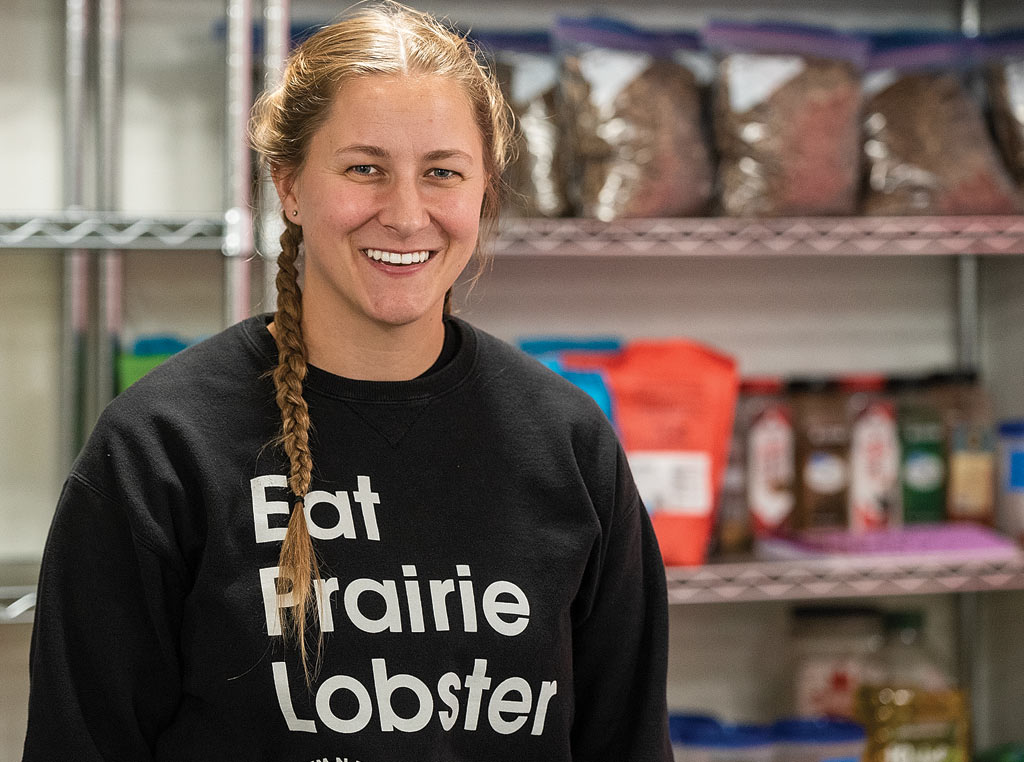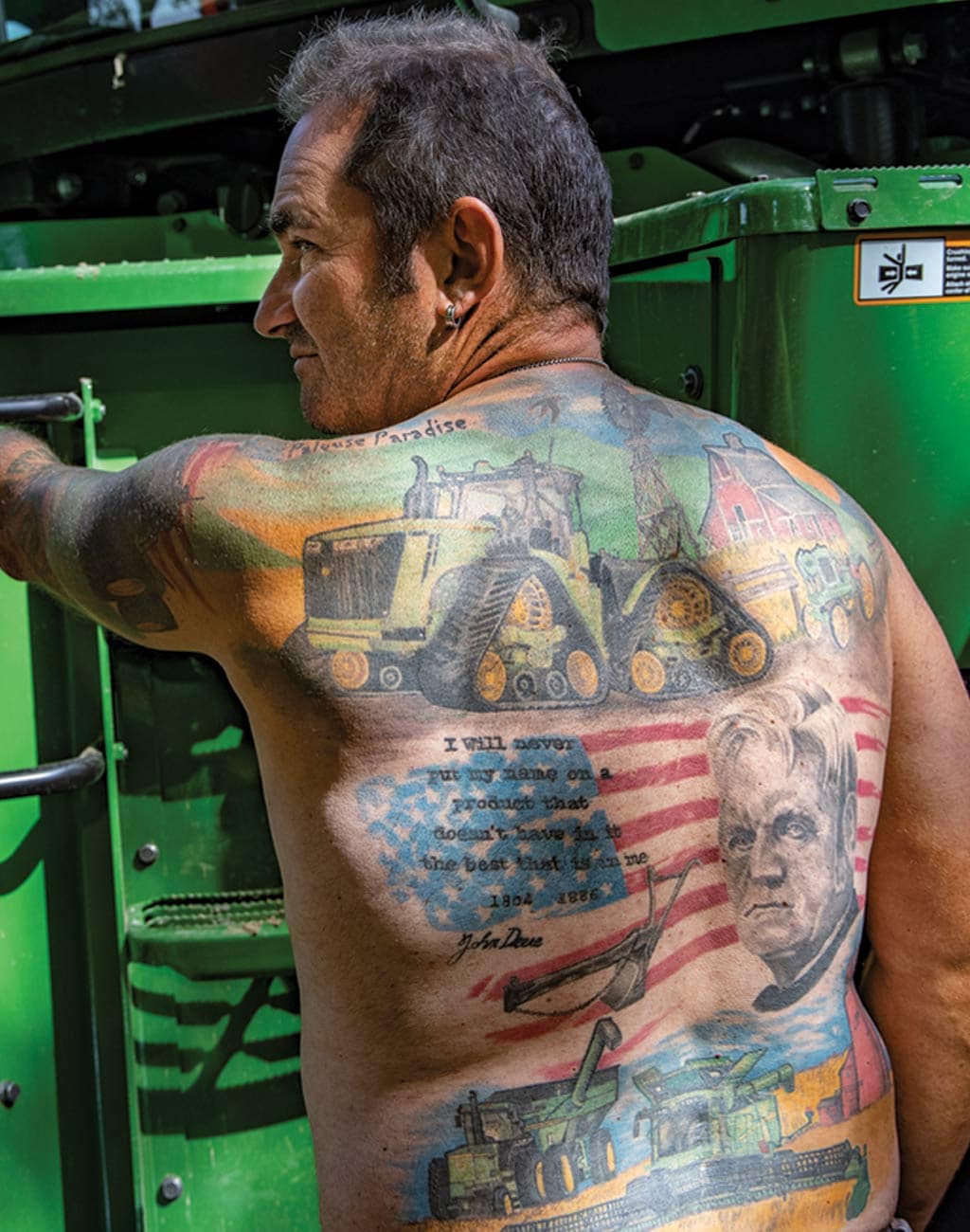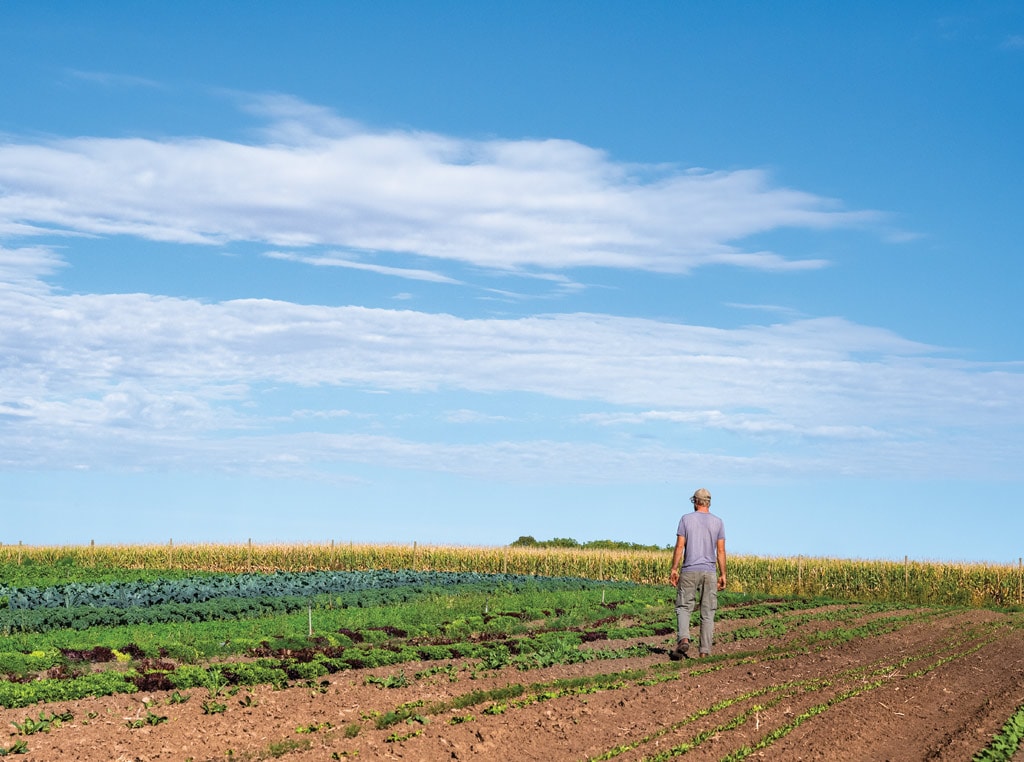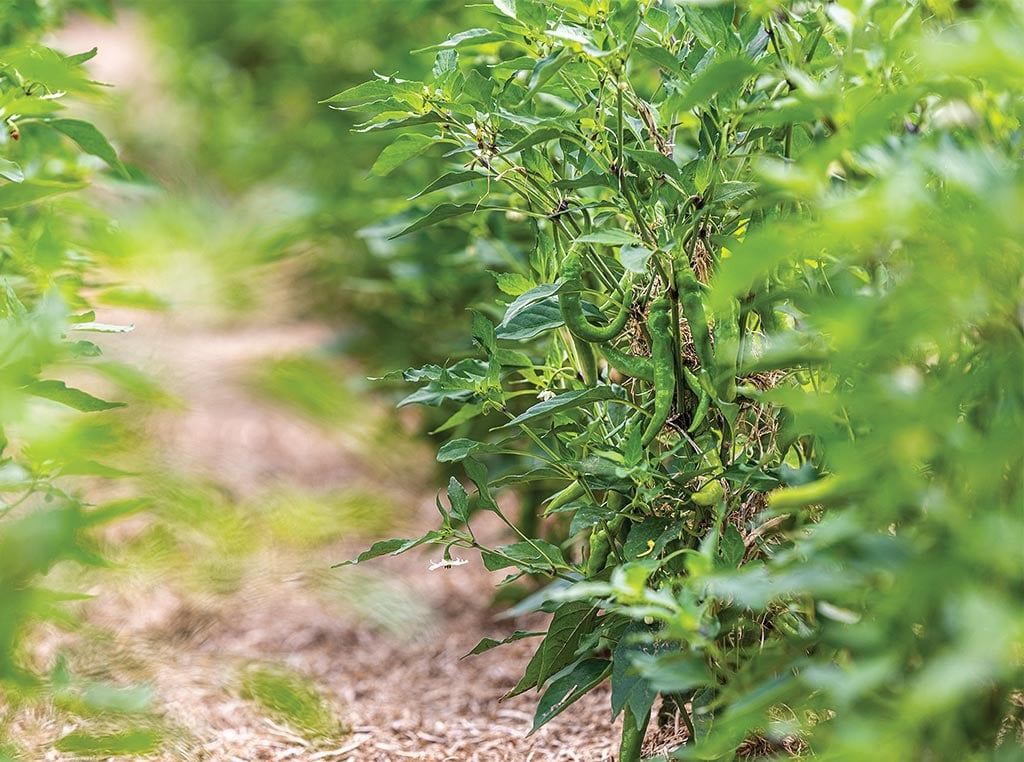Agriculture, Specialty/Niche March 01, 2022
Some Like It Hot
After planting a little bit of everything, hot peppers turned out to be the ticket.
Who would have thought a kid from Vermont with interests in ecology and who allegedly felt dizzy after tasting his first bite of a Carolina Reaper hot pepper would find himself growing 35,000 pounds of hot peppers a year, in Minnesota of all places?
This is the basis of the unlikely story of how Dana Jokela has turned a portion of his family’s corn, soybean, and livestock farm near Cannon Falls, Minn., into a supplier of the booming artisan hot sauce industry.
“It started in 2016 with a handshake deal for 1,000 pounds of Anaheims [a mild, medium-sized chili pepper],” recalls Jokela.
He and his young family had just moved onto his grandparents’ farmstead and started an organic vegetable farm, called Sogn Valley Farm, on a portion of the land. He was growing a variety of produce for farmers’ markets and a weekly subscription program (commonly called a CSA).
Peppers were a natural fit for his rotation because he’d spent time researching growing practices for peppers and broccoli in grad school. He had no intention of eventually planting 20% of his acres into hot peppers in a cold climate, though. (They prefer a warm, sunny, and dry climate.)
But that’s part of farming; in order to succeed, you need to follow where the market leads.
Above. Since 2016, he and his family have been transitioning 36 acres of his grandparents' row crop land into organic vegetable production. Hot peppers, including habaneros, are his main crop. He wholesales about 12 varieties to craft hot sauce makers.
Blazing forward. “All of a sudden, we were growing 18,000 pounds of hot peppers for another hot sauce maker, and then by word-of-mouth we got connected to a few more,” Jokela says with both pride and disbelief about the snowballing growth.
Hot sauces are the new, hot thing. Artisan brands currently make up one fourth of the market, and researchers expect the industry to double by 2028.
The creator of Lost Capital Foods’ hot sauces, DJ Bocchetti, uses Jokela’s peppers. Instead of cooking, he ferments his sauces for added health benefits on top of the flavor. “Everybody, including me, seems to have high blood pressure, and the way around it isn’t Mrs. Dash anymore. Now, it’s hot sauce,” Bocchetti says.
Jokela raises about 12 hot pepper varieties to fulfill his wholesale accounts, but with no formal (or informal) vegetable crop insurance, he continues to grow other fresh produce. The farm’s CSA program was extremely popular in 2020 and 2021. While the marketing diversity is really helpful, labor is challenging because much of his crop needs to be hand-harvested at the same time.
This huge obstacle—along with normal weather concerns—has Jokela contemplating how to better balance his operation in coming seasons. It may be with another wholesale crop, additional late season vegetables, or wherever his next handshake leads. ‡
Read More

AGRICULTURE, SPECIALTY/NICHE
Crickets...no, really
Iowa farmer finds niche with edible insects.

AGRICULTURE, SPECIALTY/NICHE
Biggest Fan
Deere aficionado shows his appreciation in ink.





